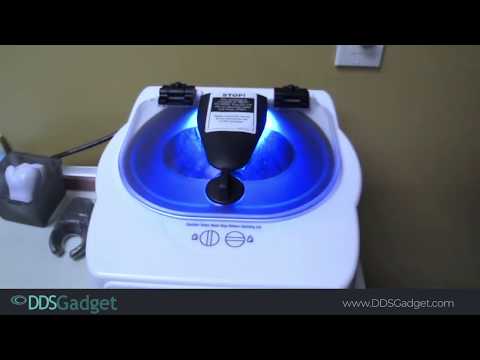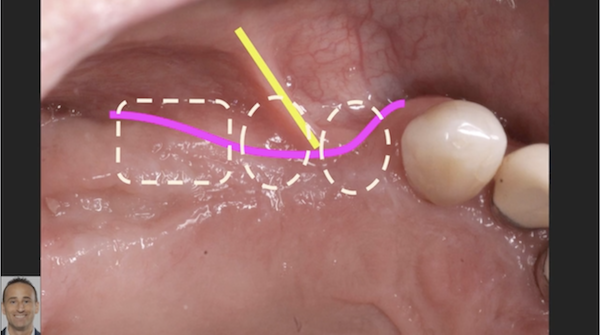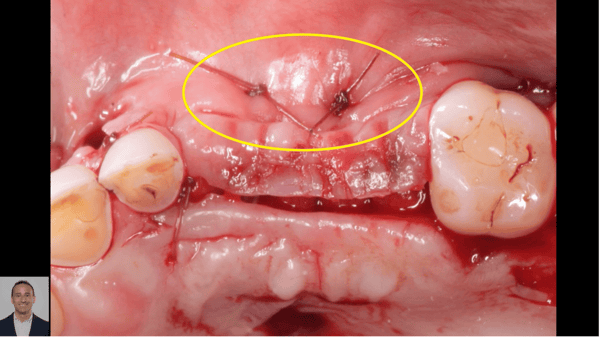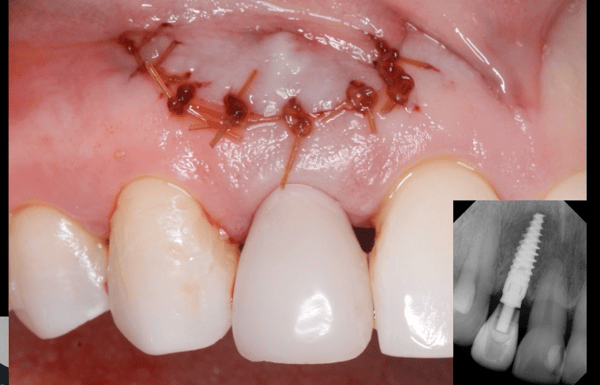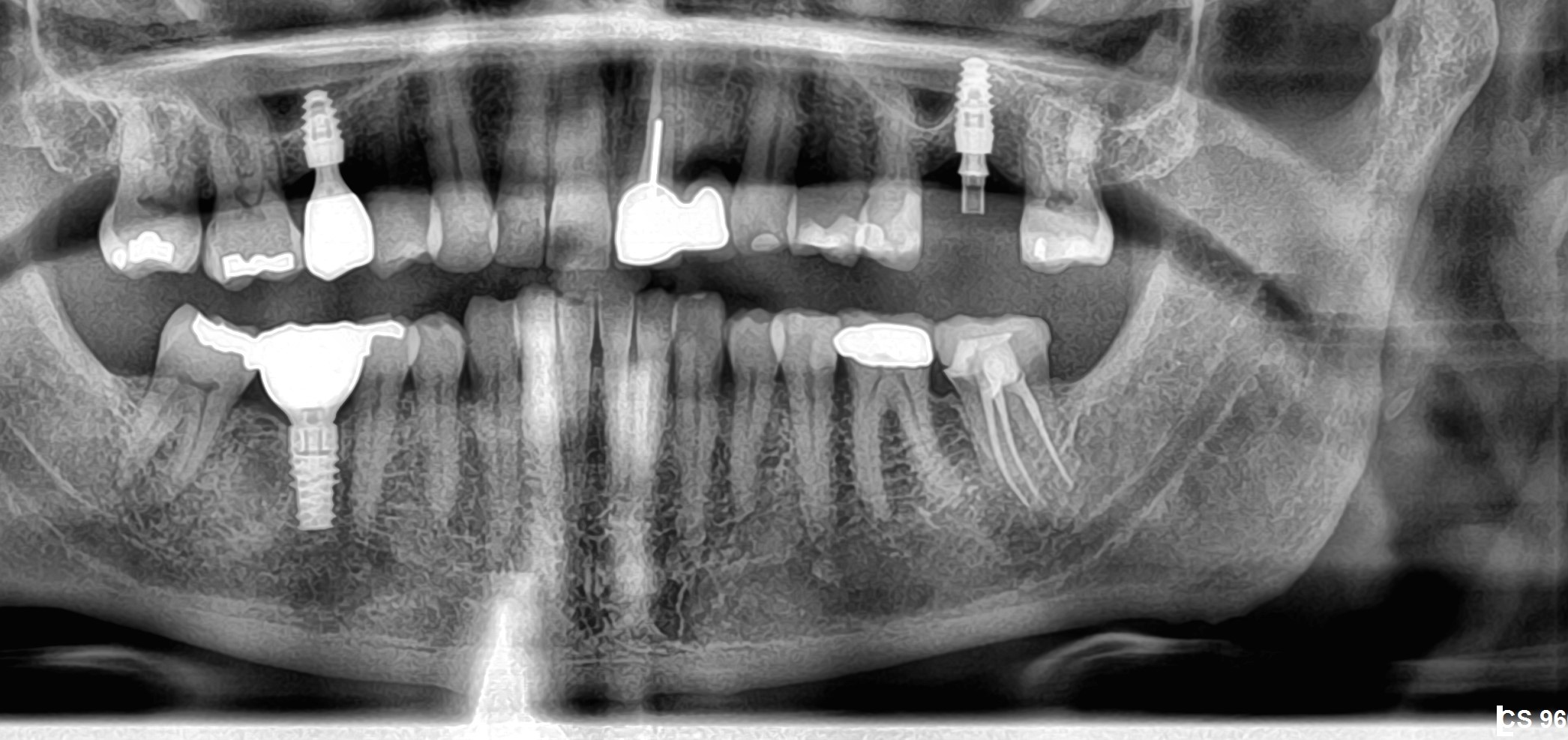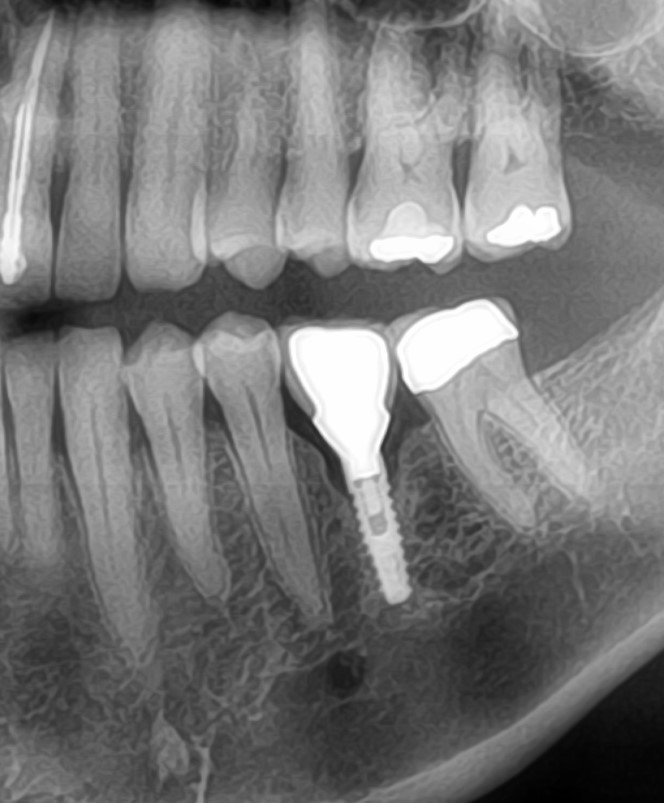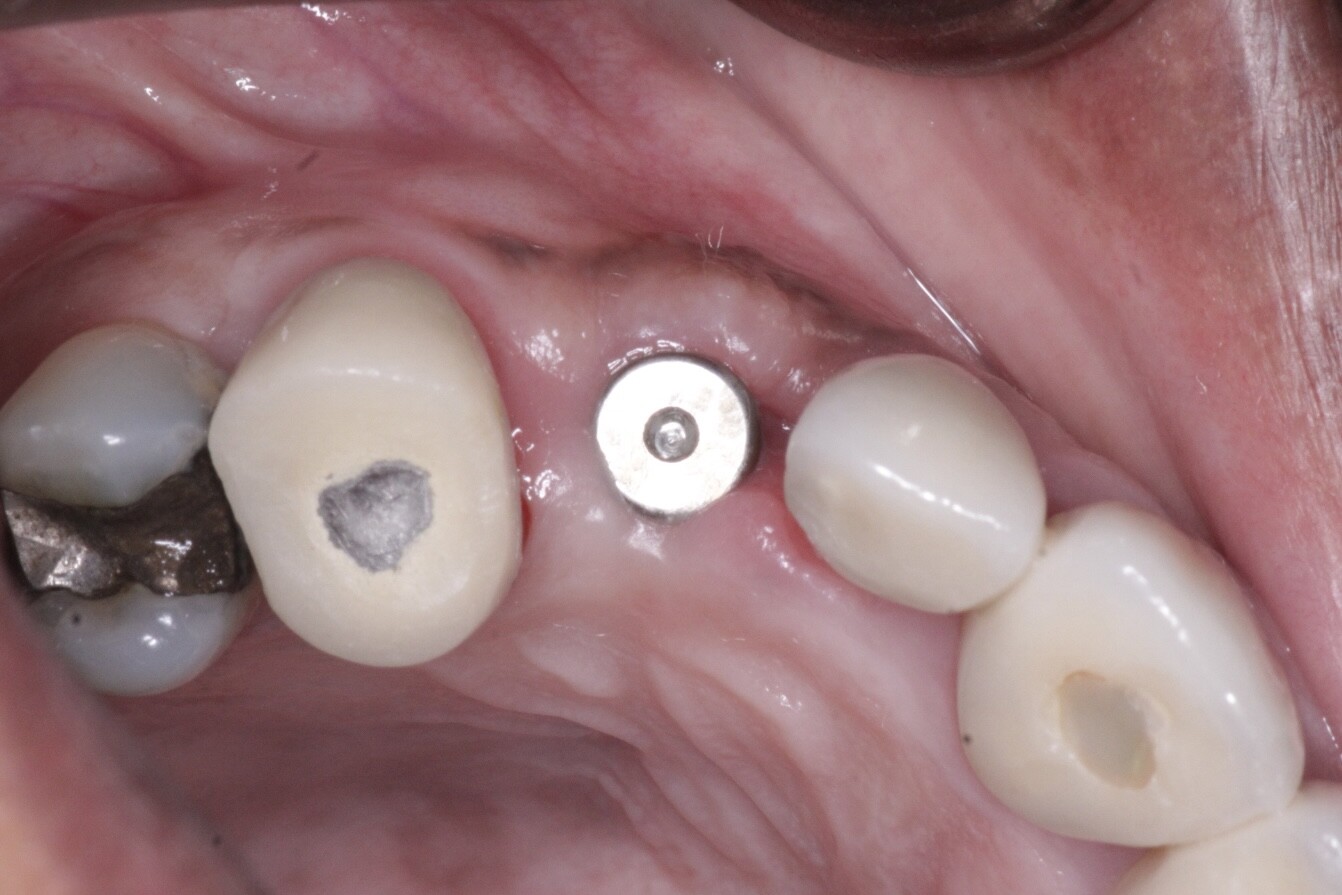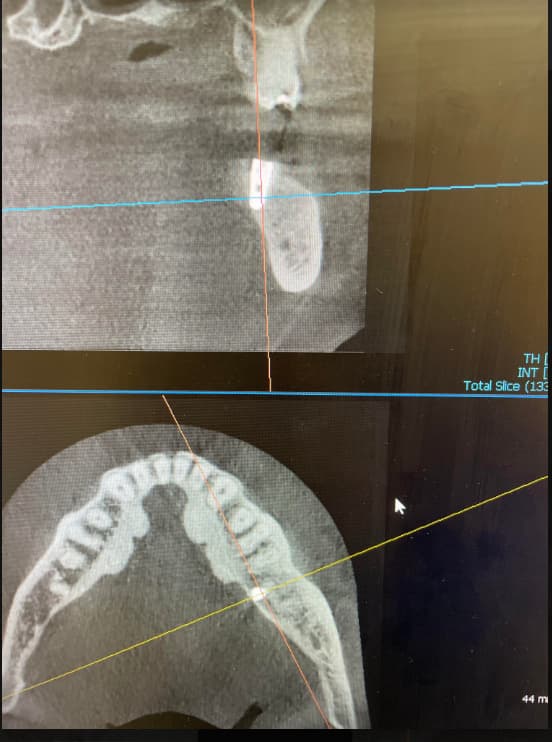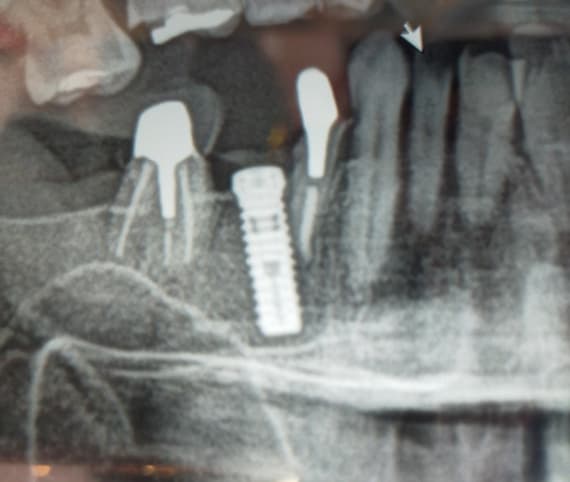Antibiotic coverage post implant placement?
I would like to open a discussion on choice of antibiotic coverage after implant placement. Obviously, there is a wide range of practices. To date, I’ve been using a low dose Pen VK 250mg for 7 days after placement, but have read of some guys prescribing something “stronger” like Clindamycin 300mg for 14 days. I am looking to put together an updated regime for post ops. What have you been using and why?
39 Comments on Antibiotic coverage post implant placement?
New comments are currently closed for this post.
CRS
9/9/2013
I would increase the PenVK dosage to 500mgx7days since the 250mg is usually a child's dosage or the elderly. I use Amoxicillin 500mg qidx7days.
behzad
9/10/2013
There is no restrictions and basically depends on patient hygiene and number of implants.
naser
9/10/2013
there is no strict limitation for antibiotics intake except for pts with hypersensitivity to a particular type ,other considerations depend on the general health status of the pt .and on the local area health condition and we take into consideration the hygienic habit of the pt.. I usually ask the pt . about his recent intake of antibiotics and avoid the same family.
justin
9/10/2013
I've also wondered what the general consensus is on post surgical AB's. Does anybody do pre-op AB's? During my Air Force career I routinely saw OMS routinely give IV AB's during implant cases... Any thoughts?
Dr JD
9/10/2013
Is there any really great evidence that antibiotic use improves the prognosis of successful implant placement?
Alejandro Berg
9/10/2013
We do AB, preop 48h and for a total of 7days. Normally use a firstgen cepholosporin like cefradin 500mg e/12h. not for pen allergics.
This AB is very good for bone surgeries , so much so that is also our first choice in 3rd mollars and impacted canines. If allergyc we go with Moxyfloxacin 400mg e/24h up to 10 days, starting also 2 days before surgery.
Cheers
Alejandro
George
9/10/2013
Where is the evidence to prescrib such AB? I think ever one of you follow his/her thought. Personally I've never given any AB before or after even if patient have heart problem, never have problem
Please, any one who suggest to prescrib AB show us any evidence based information.
Thanks
George
Kaz
9/10/2013
I agree with George. There are not many good studies to show use of AB. The only research that seems somewhat valid is to pre-med the pt with 2gm amoxacillin 1 hr before the appt. Post op ab studies do not show that there is any value. I will look for research papers to back up my position.
docsoftovic@hotmail.com
9/11/2013
Here is one by : Wah Ching Tan; Niklaus P. Lang. "Are Prophylactic Antibiotics indicated in the Installation of Implants?' Forum Implantologicum. Vol 8/ Issue2/2012
Dr SGS
9/21/2013
I agree!!!
Miguel Martinez
9/10/2013
Great topic however, I prescribe Amox 500mg, 21, tid after 1g preop just cause sometimes patients have bad habits in this dirty world.
john townend
9/10/2013
I assume most of the contributers to this thread are US based practitioners. I have to say it makes me weep to read so many people advising huge doses of antibiotics entirely inappropriately. No wonder you have such problems with antibiotic resistant organisms. Much of this advice is frankly irresponsible.
Maite Moreno
9/10/2013
Hello, I make my patients take 300 mg of Clindamicine one hour before the surgery, if they are ordinary patients. Diabetics, or other compromised patientes, one day before with Clindamicine 300 mg. every 8 hrs. for 7 days in total.
Maite Moreno
9/10/2013
I am in Tijuana, Mexico. My patients come from abroad, and being a distant dentist, with a recent implant or multiple implants placed. I have very good results using this dosage. Patients seem to tolerate well. I only had a serious situation with the antibiotics been prescribed previously by a root canal specialist, which in turn gave the patient a more compromised immune system. He had periodontal bone surgery and 3 implants. He was hospitalized for 21 days. He survived, (thank God) and then he do not have any issues with his mouth. Yes, antibiotics, may be dangerous, not well prescribed,,... a real problem. Thank you for the forum. All best, from Maite Moreno DDS, MS
arrif lalani
9/10/2013
I don't understand why so many practitioners are using antibiotics before or after. Maybe in the UK we have different bacteria? Or is it a case of defensive dentistry?
Kevin Mischley
9/10/2013
Thanks for your input, Gentlemen. I would propose that we could look at this as we do with premedding for joint replacement patients. Personally, I have never been convinced that it is necessary seeing that people introduce bacteria into their bloodstream by doing something as mundane as flossing. In addition, I have trouble trusting recommendations that continuously change. I'd be interested to hear from our colleague from across the pond on the current premed recommendations with respect to joint replacement and heart murmur in the UK? Just curious...thanks.
CRS
9/11/2013
Actually I used to feel the same way, if the patient has poor perio brushing and flossing can lead to bacteremia on a daily basis(doubtful a perio patient would do this daily!) which gets all those great inflammatory agents stirred up systemically but I feel that antibiotics can't substitute for simple wound and oral hygiene. In the US we have too many lawyers and drug companies! And hand sanitizers!
Kenneth Stoler
9/10/2013
It has been my understanding that the most effective time for beginning AB treatment
is during the perioperative period and that starting ABs 48 hrs in advance does not
work and has been abandoned.
Dr G John Berne
9/10/2013
It's opportune to discuss routine use of antibiotics for minor surgery. There is no question that implant placement is minor surgery and the scientific community are unanimous regarding routine use of antibiotic for non life threatening surgery or procedures. It shouldn't happen due to the ever increasing incidence of antibiotic resistance.
I have been using a non antibiotic protocol for some years now and my infection rate is extremely low. If you start with a pathogen free mouth, use a sterile procedure, including judicious use of Ozone, and adequate follow up procedures, then infection should be rare. In the rare incidence of infection, local treatment, particularly with Ozone is usually effective without resort to systemic antibiotic.
We owe to the future generations the judicious use of antibiotics, and categorically only when indicated. The indiscriminate use of broad spectrum antibiotics will potentially see the demise of the human race due to uncontrollable infections.
Baker Vinci
9/10/2013
There is not a lot of great science that supports the use of antibiotics in implant surgery, but there are quite a few valuable studies that involve wisdom teeth and the use of hardware in trauma or orthognathic surgery. If the patient's oh. is good and you are placing a simple implant in "virgin" bone, I see no need for antibiotics. If you are placing multiple implants in an " all on " scenario, it only makes sense to give abx.. I believe the same goes for the extraction/implant cases, bone graft cases, sinus lifts and cases that have active low grade infections . If I had to guess, I would bet that prophylactic antibiotics in implant cases are the "standard of care " in most parts of the country. This does not, by any stretch, mean that it should be.
It is my opinion that large cases that require large volumes of bone, where(dead spacing) swelling is inevitable, antibiotics and in some cases steroids are indicated . Of all the listed risk and complications, I find infections to be one of the least likely to occur. We have done running studies on all procedures at our little facility and we have had one implant Infection that did not resolve, with standard measures. Just as we have said time and again, there is no definitive answer to the question, but time, gestalt and repetition will certainly assist us in answering one more elusive question. B Vinci
CRS
9/11/2013
Very good rationale, and actually most patients don't need antibiotics after 3rds or simple implants. I follow them up in 7-10 days when a post op infection would present. The problem is most patients expect antibiotics as standard if care. I have to give the above explanation when I don't prescribe. I think antibiotics are overused.
cory c.
9/11/2013
I think more importantly is the "work-up" prior to placement. make sure there is no perio issues thruout the mouth and resolve any existing ones. prophy/clean the entire dentition w/in one week of placement, preferably w/in 48 hrs. have them rinse w/ an antiseptic sol'n just after anaesthesia and use standard sterile surgical protocol. this should be adequate for most routine placements. if you're ext'ing w/ immed. placement into compromised/infected sites you might ask yourself why you're rushing the case.
Baker Vinci
9/11/2013
Cory, I am all for that suggestion. One of the things that has made me unpopular with some of the dentist that provide care for Medicaid patients is; I demand a cleaning before I remove thirds, when it's indicated, so obviously, I do the same for other surgical procedures. Some of the restorative doctors look at me, as if I have 3 eyes. I have learned that reimbursement rates for cleanings is very low. I am not sure if there is a more Important phase of care than hygiene. B Vinci
Nelson
9/11/2013
It is not necessary use antibiotics when patient is healthy. Only if patient have diabetis or another systemic problem.
L. Houhou
9/12/2013
YES, there is the recommendation of fssaps (2011) that differentiate between a healthy and risky populations (endocarditis and immunodeficient patients).
When w talk about a healthy patient the use of ATB is not recommended, it is in case of sinus lift and bone graft
Baker Vinci
9/11/2013
Nelson,
That is a pretty dangerous generalization. Bv
Baker Vinci
9/12/2013
If we are treating diabetics, it is important to have a pretty good understanding of the disease.
Diabetics that manage their disease "tightly" can be healthier than the patient that denies any significant conditions. I've said this before, it's up to us to get the appropriate thorough history. The hemoglobin A 1C is the standard of care, of assessing long term management of the disease and the compliant patient will most likely be able to "rattle off" the last three of those results and if not, a simple call to the patient 's pcp or endocrinologist, will give you volumes of information. B Vinci
Dr G John Berne
9/12/2013
I agree with the comments regarding preparation of the mouth prior to surgery.It is critical.
Also I might comment that I rarely use antibiotics for surgical removal of wisdom teeth as I ensure there is no infection present at time of surgery, wherever possible.
My biggest problem from infection is surgically treating patients with beards and moustaches. These are great incubators of infection and in my practice pose the greatest risk of infection. The nose is a major incubator of Staph Aureus and when the nose dribbles onto the moustache there is an even greater incubator. Together with food and salivary detritus dripping onto the beard we have a walking cesspit. Evidence regarding MRSA infections during surgery point frequently to the patients themselves as the source of infection and I advise all my patients to remove their facial hair before any surgery. Unfortunately not all take my advice. The use of disinfectant facial scrubs, which I routinely use, however is only partially effective and cannot sterilize the facial hair.
Richard Hughes, DDS, FAAI
9/12/2013
The longer you have a patient open, the need for antibiotic coverage increases. Many factors influence if antibiotic coverage is indicated: presence of infection, patients EtOH, smoking etc.
naileshgandhi
9/14/2013
I fully endorse opinion expressed by Richard Hughes.In short he has given full coverage to the question.
Richard Hughes, DDS, FAAI
9/15/2013
Thank you
Tyler Borg
9/14/2013
There is good evidence (Laskin VA study and the Systematic Review by Esposito) that a 2g pre-op dose of amoxicillin can prevent implant failure (NNT was 39 I think) but that coverage for 7 days after implant placement without any other procedure didn't improve outcomes.
Baker Vinci
9/15/2013
I would like to respond to the suggestion that facial hair may increase the incidence of MRSA infections. There is no doubt in my mind that staph. colonizes in the nose and the immune compromised patient is more likely to have a fungal colony or even an angular chelitis or other candida type infection.
I also ask some patients to shave before a general anesthetic, primarily because getting a positive seal whilst bagging becomes almost impossible with these people.
In 25 years of treating serious life threatening infections and even simple conditions that can be treated with po antibiotics, I have yet to see one that was a result of Methecillin resistant staph. A., in a pure oral surgery case. As a matter of fact, unless the compromised condition is a result of an extra-oral procedure, an isolated skin or facial soft tissue, I almost never consider MRSA, when picking the prophylactic drug. Normal oral flora, strep. viradans, bacteroides and psuedomonis are the most common bugs that I can recall off the top of my head.
Having just had a pretty significant orthopaedic procedure, my memory has been "jarred" and MRSA infections are the single most common infections that occur with this specialty. I believe pseudomonis holds a close second and is probably one of the most common nosocomial bugs, in our hospitals. B Vinci
Prof.Dr.Bülent ZEYTÄ°NOÄ
9/16/2013
If the patient has no systemic diseases and under 60 years of age and if strict surgical protocol is used there is no need for postop AB therapy .But if tromatic surgery is done and if any graft material and membrane is used a large spectrum AB may be used for five days.Ä°f the patient has systemic problems his or her doctor must be consulted before starting any therapy.
justin
9/16/2013
This has been a great discussion. What is the consensus with AB coverage for site preservation with grafting materials?
Baker Vinci
9/16/2013
My response was to use them. I, personally will start the patient on amox., 2 days prior and have them take it for 5 days post op.. Overkill, most likely, but when placing foreign bodies in an area that colonizes bugs like the oral cavity does, it is the "standard of care" where we operate. Bv
Dr G John Berne
9/17/2013
Latest stats out from USA-23,000 patients die annually from antibiotic resistant organisms.
Time to think seriously about routinely using antibiotics for minor non life-threatening surgery.
Bruno Nicoletti
11/20/2013
Study should be made to view if Autologous plasma component from phase separation
is sufficient for minor surgical procedure.....
Antibiotics to be used only as a last resort... stop the prescription addiction
that has created immune bugs
Baker Vinci
12/1/2013
There has been a study that strongly suggest grafting in infected sites, PRP lessens the likelihood of post-op infections. We have also since learned that PRP is not what we once "thought it was". Bv





